Associate Professor Emma Camp is an award-winning marine biologist internationally recognised for her pioneering research on coral reef resilience and her advocacy for gender equity in STEM.
Pioneering coral reef resilience
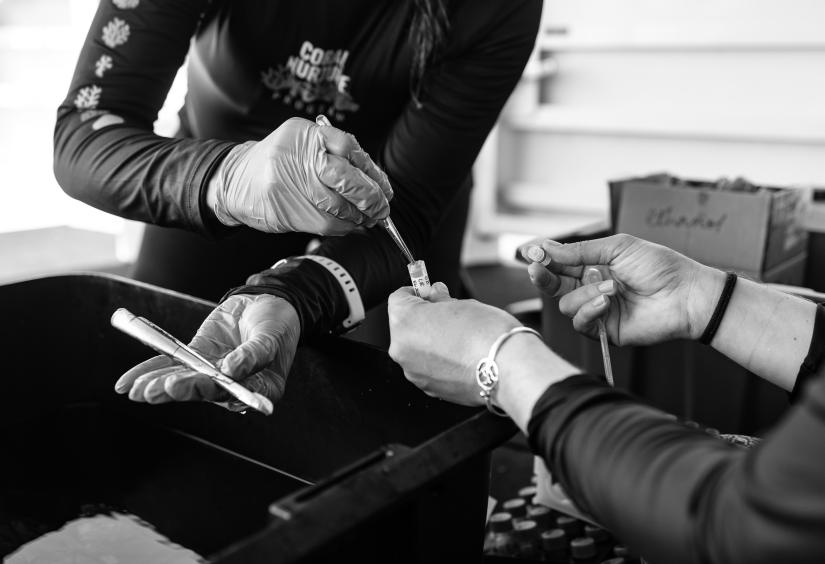
As Team Leader of the Future Reefs Program within the Climate Change Cluster at UTS, Emma leads interdisciplinary research focused on the physiology, ecology and biogeochemistry of coral reef systems.
Her work explores the adaptive capacity of corals to environmental stress, with a particular emphasis on highly tolerant 'super corals' that may hold the key to reef survival under climate change.
She is also a co-founder of the Coral Nurture Program, a collaborative initiative between scientists and the tourism industry aimed at enhancing reef stewardship on the Great Barrier Reef.
Emma’s research aims to understand how we can build coral resilience in the face of climate change.
Reefs are under threat globally with a risk that we will lose reefs within our lifetime.
“My research is trying to see how we can use science and technology to support reefs for the future.”
Our research wants to ensure the communities that rely on reefs can be part of the restoration process.
The team’s research is multifaceted and includes speaking with communities that rely on reefs to try to understand how they can be part of the solution.
“Our research wants to ensure the communities that rely on reefs can be part of the restoration process,” Emma said.
“We’re also looking for new technologies, particularly phenotyping technologies, to help us predict which corals have the best chance of surviving future ocean warming.”
Emma explained how coral nutrition is a key factor that shapes how corals respond to stress.
“We're trying to tailor their nutrition to give them a boost during stressful periods, a bit like we do with multivitamins, to give corals an additional chance to survive into the future.”
Remote video URL
International funding success
One of Emma's recent collaborations is with industry, international community practitioners and academic institutions.
She and her team received funding from the Coral Research and Development Accelerator Platform (CORDAP) Coral Accelerator Program that has supported their research into coral nutrition.
Emma noted that this project is also supported by the Group of Twenty (G20), the premier forum for international economic cooperation that plays a critical role in steering the global economy through its significant challenges.
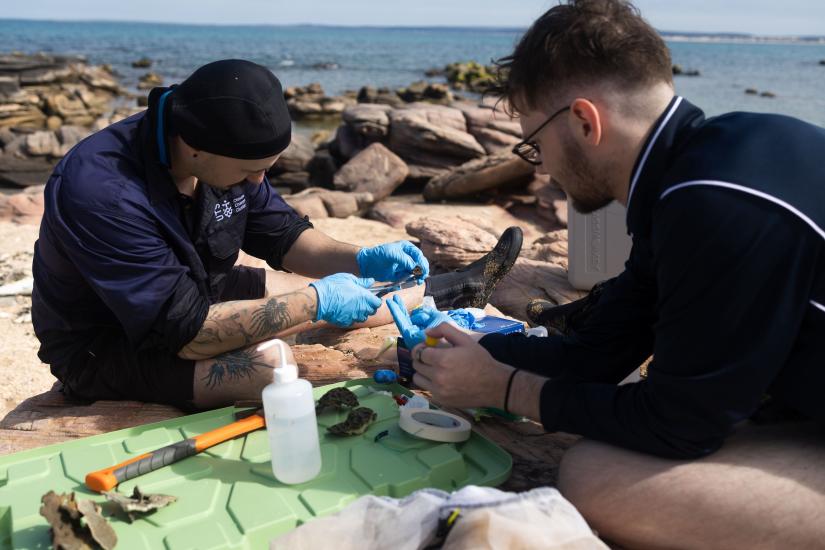
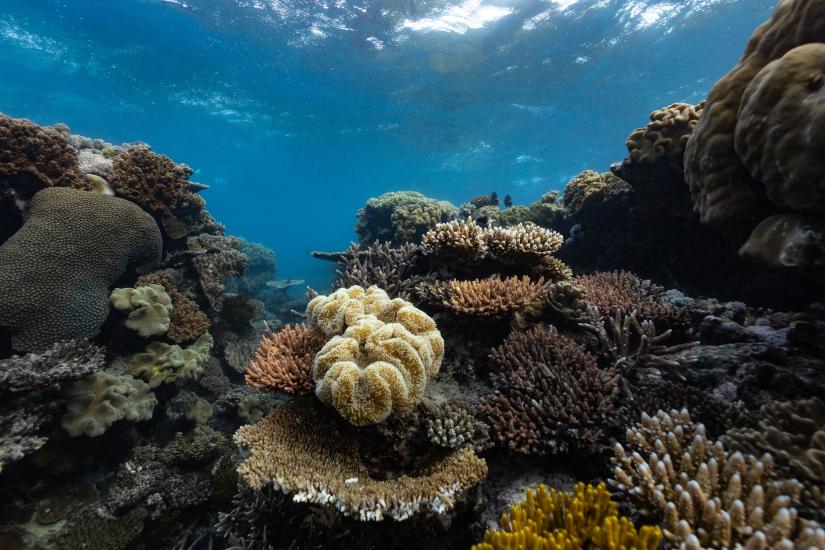
Multi-million-dollar support from the G20 for this 3-year program has allowed Emma and her team to explore a new research and development angle.
“It wasn’t like other funding where we’ve almost had to be able to show that we can do the project before it begins,” she said,
“This international funding is about us trying to think outside the box, come up with solutions that have been applied in other systems such as agriculture and seeing how we can bring that to the coral reef realm.”
The long-term funding challenge
Emma shared how it has been a challenge to find and secure long-term funding.
“It is particularly difficult when we move into the coral restoration space. We’re talking about 5 to 10 year projects, and if we want them to be successful, that’s the timeframe we need to aim for.”
However, Emma said that research funding tends to be in 1 to 3 year cycles.
“That’s one of the biggest challenges we face. It’s about how do we try to build in that project legacy while also finding the funding we need to continue our research.”
Breaking down our long-term vision into smaller pieces that funders can get behind is a strategy that has worked for us in the constraints of the funding mechanisms available.
To overcome these challenges, Emma and her team needed to think about their vision and what research they needed to achieve it.
“It’s about chipping away and having smaller projects that get to that overall objective that can be targeted by different funders,” she said.
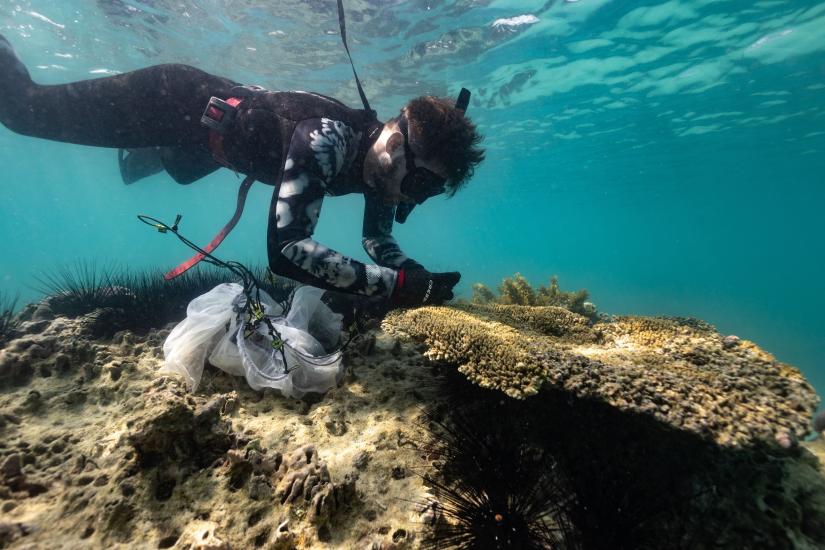
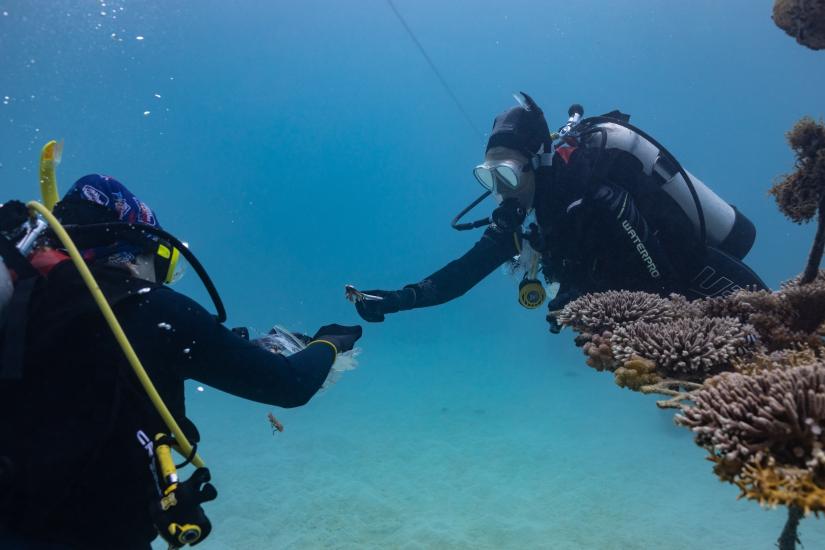
“We have found that funders see it as a positive thing if there has been previous buy in from other funders or if you have a bigger vision for the project. Breaking down our long-term vision into smaller pieces that funders can get behind is a strategy that has worked for us in the constraints of the funding mechanisms available.”
“I’ve learnt that diversifying where you look for funding is crucial,” Emma said, recommending that researchers move beyond the Australian Research Council and look at philanthropic funders and international funders.
“This has been key to our team’s success. Those grants you can recycle across multiple platforms are crucial because as much as there have been successes there are equally as many failures that people don’t hear about,” she said.
“We are ensuring that we’re maximising our efficiency and time by having those grant ideas that can be put in a few different places.”
Emma’s advice for others
“My advice for others is to be resilient,” Emma said. “There will be failures. There will be negative comments. It’s about accepting those comments. If you know that the vision is there and the project is worthy of funding, take the feedback and refine your project.”
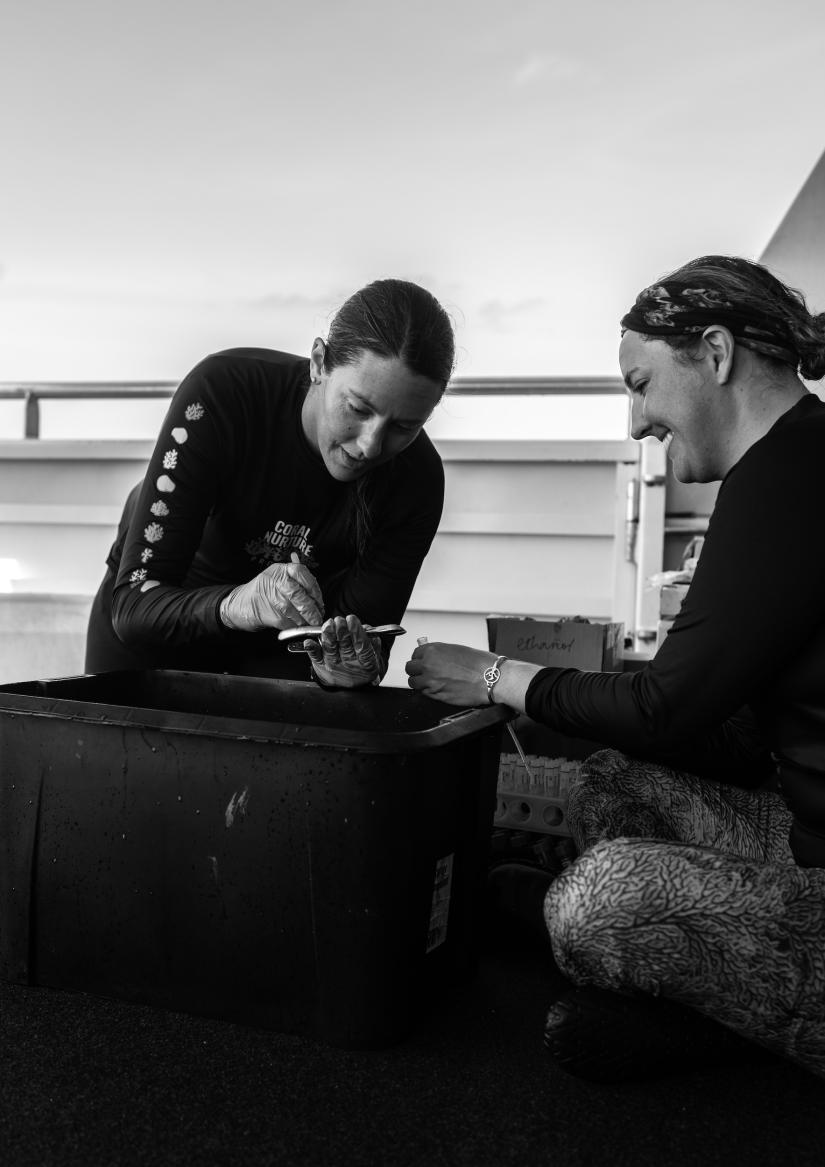
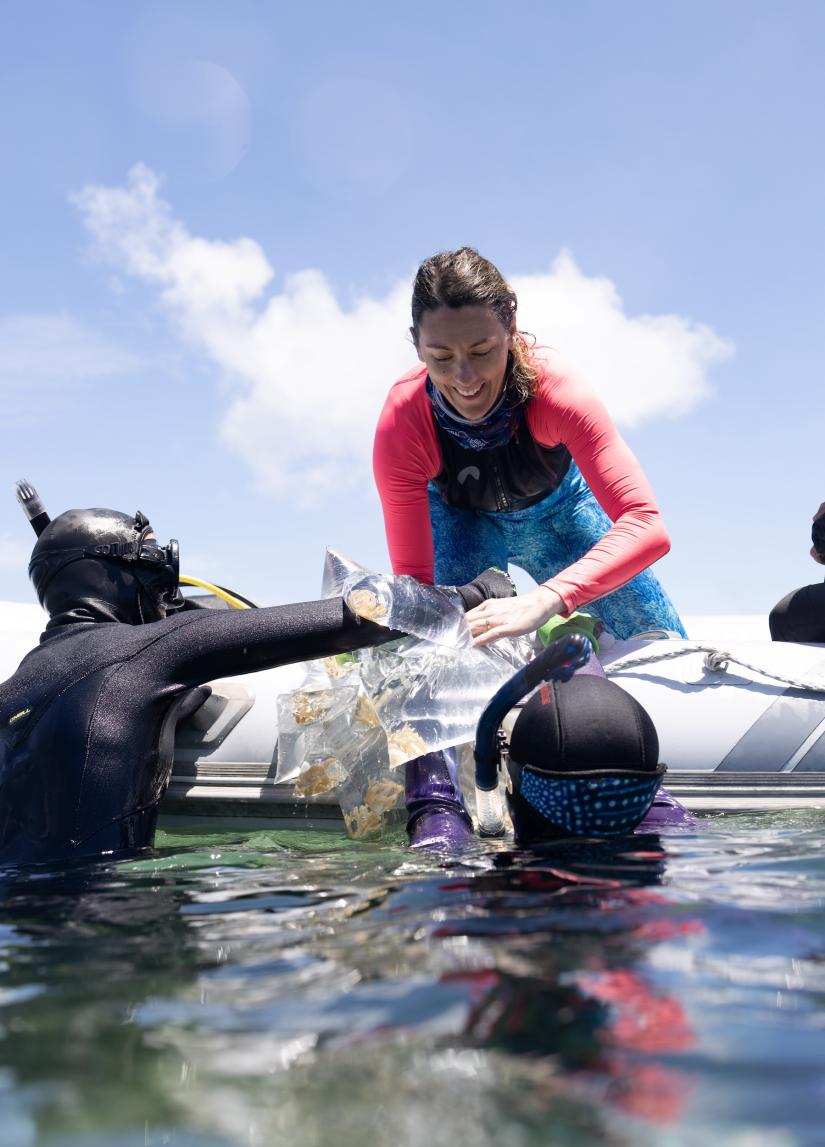
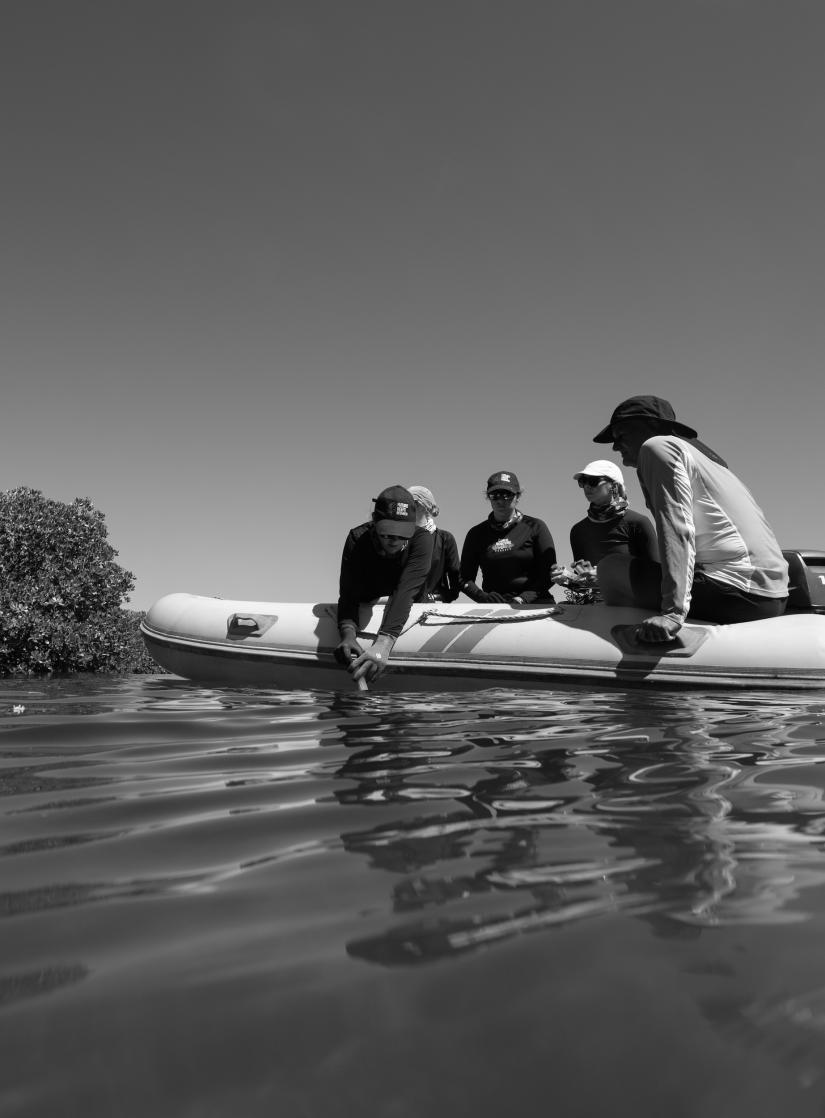
She also said to think about the sort of people that will benefit from your work and then think about what funders are interested in that particular group of people’s beneficiaries.
“That can really help target your applications to the right people to give you maximum chance for success.”
What’s next?
“Next for the team is to see how we can scale up the solutions that we're starting to develop,” Emma said. “At the moment, everything is either at the research and development phase or at a small-scale pilot phase. For us to give reefs the best chance we now need to scale up.”
This will involve collaborating more with industry and other scientists to translate this knowledge into real world impact.
Watch Emma's full video interview
Remote video URL
Learn more about Emma’s research
What’s next?
Go to the Building an International Research Strategy landing page